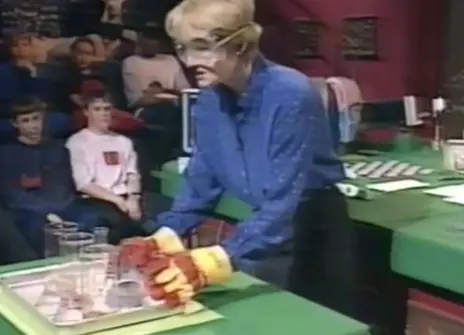Lecture 4 – Times of our lives
Many of us wake up in the morning to the sound of an alarm clock. But our bodies each have a unique clock of their own. This natural body clock is set in rhythm every morning by the Sun, and tells us when it’s time to wake up and when it's time to go to sleep.
In her fourth lecture, Nancy Rothwell explores how our bodies and those of animals are trained by sunlight. From summer to winter, and land to ocean, Nancy explores nature's most unique examples of timing, including why Cicadas emerge from the nest after exactly 17 years, and how the Iguana can tell whether it’s daytime even with its eyes shut.
The changes in season have a particular effect on animals, and the time an animal is born will determine how likely it is to survive. In winter, food is scarce and the freezing conditions can be tough. Find out how many animals collect and store food in preparation for hibernation and why they do it.
Nancy ends her lecture with a look at life span which varies greatly across the animal kingdom. A mayfly will only live for one day after it hatches, whereas an elephant can expect to live for 70-80 years, and giant turtles for several hundred years.
Small animals normally have shorter life spans than big animals. So why do little creatures like bats or lobsters often see their 50th birthday? As Nancy reveals, cells have a pre-programmed time of death that tells them exactly when their time is up.
About the 1998 CHRISTMAS LECTURES
From burning off that extra piece of pudding to keeping it cool, our bodies are juggling all sorts of chemical reactions to keep us alive and healthy. Over the course of five lectures, Nancy Rothwell takes a closer look at the physiological processes that help our bodies stay in balance, and reveals what can happen when that balance tips the wrong way.
Beginning with a look at our senses, Nancy explains how our perception of the world around us is essential to our survival, and how other creatures in the animal kingdom have evolved similar sensitivities.
We learn how all our bodily processes are fuelled by energy in the food we eat, and how they are affected by the temperature of our surrounding environment.
With the help of some animal friends, Nancy reveals how our bodies are trained by the sun and how some creatures know exactly when it’s time to die, before finishing with a look at the astonishing adaptations animals have evolved to cope with life in the extremes.





